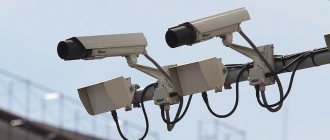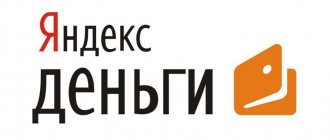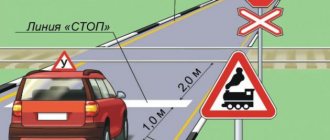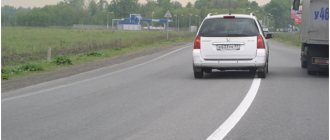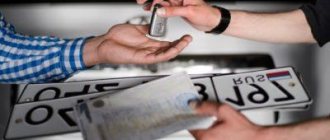Fixation Features
The operating principle of the automatic system is absolutely clear. In places with heavy traffic, video cameras are installed that record violations committed on a certain section of the road. The vehicle that came into the field of view of the device is searched in the database using the license plate number. After this, the owner of the vehicle receives a punishment based on the relevant article of the Code of Administrative Offenses.
Such a system has many advantages. Due to automatic recording, it is possible to bring to justice persons who did not come to the attention of traffic police officers. The presence of cameras has been shown to significantly reduce the incidence of misconduct.
Despite this, many drivers are interested in how to avoid receiving fines from cameras. There is no definite answer to this question, since everything depends on the specific situation. The best option to eliminate the need to pay a penalty is to drive without any violations.
How to harass the traffic police and challenge fines: life hacks from a racing lawyer
June 17, 2021, 22:00 - Public news service - OSN It is quite possible to challenge traffic police fines if you know how to do it correctly. Russian champion in drag racing, lawyer Oksana Yakovleva, shared life hacks with the Public News Service.
How to fool cameras
If you cover a license plate with double-sided tape and flies stick to it, the license plate will not be readable. But this is not considered an offense. You didn’t use materials that would make identification difficult.
“It’s the same with snow in winter. It's not your fault that the streets are not cleaned. Sometimes inspectors stop: “Your license plate is not visible.” I approached, tapped my foot, the snow fell off. And the questions disappeared by themselves,” said Yakovleva.
Other region
If the driver is in another region, a fine can be avoided. Fines are most often not issued for cars registered to children under 16 years of age or if you have an illegible license plate. For example, one letter or number is not visible.
“I drove a car across half of Russia. There could have been some offenses. If your letter is blurred or the owner is under 16 years of age, an investigation into who was driving the car is necessary. For example, a request was made from Tambov to Krasnoyarsk, at the place where the car was registered. And Krasnoyarsk inspectors give the answer that they know nothing. Because searching for the owner of a car is labor-intensive,” the lawyer noted.
Moreover, fines go to the region where the offense was recorded. And although traffic police inspections should cooperate with each other, in reality it is easier for them to write a formal reply.
Technology to help
It is better to record your communication with the traffic police inspector on video and not interfere with the inspectors. Do not give in to provocations, otherwise you will be assigned a more serious article.
It is advisable to make a video recording both in the inspector’s office and even in court. Officials have the right to refuse video recording. If video recording is prohibited, then turn on audio recording. Warn and turn on the recorder.
In what situations can you evade punishment?
Before you find out whether you can avoid paying fines from cameras, you should find out about the terms of debt repayment. By law, funds must be deposited 60 days in advance. Moreover, in the first 20 days the driver can receive a discount. Within 10 days, the motorist has every right to appeal the decision. If a violation is recorded on camera, you need to file a complaint with the appropriate center.
Unfortunately, there are practically no absolutely legal methods to eliminate the need to bear responsibility. It happens that there is an error in the system, and in such cases the punishment is completely unreasonable and illegal.
Attention! When resolving controversial situations, the driver is required to provide photo or video materials confirming the fact of the unlawful action.
When considering how to avoid paying traffic fines from cameras, you need to consider the following:
- The driver is not required to be punished if the violation itself is not visible on the footage.
- The owner of the vehicle should not transfer funds if there is no information about the fine in the traffic police database.
- You can challenge the collection if the registration plate is difficult to see.
- It is easy to appeal the decision if the fine came to a completely different car (this case is due to errors in the system)
It is important to know! Having figured out how to avoid paying traffic fines legally, you should pay attention to one more aspect. According to the law, the punishment must be borne by the person who was driving. However, by default the automatic system draws up a protocol in the name of the vehicle owner. Therefore, if the owner of the car proves that he was not driving the car, then he should be exempt from paying.
Let's sum it up
Thus, if the violator does not pay the fine for violating the rules recorded by the camera, then the defaulter will face forced collection of funds along with an enforcement fee. If a person does not want to pay an unfounded fine, he or she has the right to challenge it, but this may require additional time and money.
It is recommended to regularly monitor the presence of fines issued in your name using special services on the Internet.
Ruslan Sharshakov
Certified, practicing lawyer with 5 years of experience. In 2015 he graduated from the Moscow State University of Economics, Statistics and Informatics with a degree in Law. Author's page
Evasion methods
One of the common tips on how to avoid paying an administrative fine is to simply not deposit any money. Previously, this option worked and allowed you to get rid of the need to spend your money. However, this method has many nuances that should be considered in more detail.
If the fine is not paid on time, it is entered into the FSSP database. This authority may force payment and subject the driver to additional liability.
Possible measures include:
- Increase in the size of the fine (maximum by 1 thousand rubles);
- Involvement in community service (up to 50 hours);
- Imprisonment for 15 days;
- Confiscation of driving license;
- Limitation of the possibility of traveling abroad.
There are different ways to force the driver to pay the penalty. This is explained by the fact that the bailiff has the right to a number of coercive measures. Among them:
- Seizure of funds or property of the violator;
- Writing off the debt amount from a bank account;
- Temporary travel ban.
Considering all this, the question arises as to how one can avoid paying a fine in this case. If within two years the bailiff has not withdrawn the required amount from the driver, then the debt is lost. However, the expiration of the statute of limitations is a method that works in extremely rare cases.
Other evasion methods:
- Driving with dirty license plates. The registration plate can easily become dirty on the road, for example by dust or stuck snow. Sometimes drivers deliberately apply colorless creams to the sign, which become dirty very quickly. Due to this, the crime recording camera does not recognize the number, and then the likelihood of receiving a fine is much less. As a drastic measure, you can deliberately damage the sign by stripping the paint off it. But such an action is regarded as a violation for which the driver will be fined.
- Driving with a transit number. After purchasing a car, the new owner has 10 days to register and receive his own signs. However, if the driver has an additional purchase and sale form, he can change the date and therefore constantly drive with a transit number. In this case, he will not receive fines from the cameras, and in addition, he will be freed from the need to pay transport tax.
- Foreign numbers. You can travel in the Russian Federation with foreign license plates for up to 6 months. However, then the vehicle must leave the country and return back at least once every six months.
The presented methods cannot be called absolutely legal, since the driver uses tricks to evade paying the fine. Moreover, these methods are not always successful. The risk of financial punishment remains if the vehicle is detained by a traffic police officer.
Making the number unreadable
In autumn, winter and spring, state registration plates on cars are almost always dirty. And this is not the driver’s fault. Bad weather makes numbers unreadable. But when the street is clear and dry, “hiding” the sign becomes much more difficult, but there are a couple of good methods:
1. Regular sunflower oil helps to hide the mark perfectly. Just apply a thin layer of oil to your license plate and go about your business. When driving, dust and dirt will stick to the oil.
Literally three to four days and not a single camera will recognize your license plate. If the inspector detects an oil film on the license plates, punishment can be easily avoided. It is enough to calmly explain to the traffic cop that it is not your fault that the road is in such a state.
A report will be drawn up only if the driver does not admit his guilt. Sending license plates for examination is a rather labor-intensive process, and the inspector will most likely simply ask you to clean the plates and let you go.
2. You can peel off the paint with the number, making them completely white. But this method is not suitable for everyone. The driver of such a car must be fearless, because it is damaging state signs, and this is illegal.
3. Cover the number with paper or a sign. In this case, if a traffic police officer stops you, he will definitely punish you. In most cases, you won't be able to get away with a fine. There are often cases of deprivation of rights for a period of 1 to 3 months. And besides, modern cameras are able to identify a number with a closed symbol. The system determines the sign by the bulges on the paper.
Recommendations from experts
On thematic forums you can find a lot of legal advice on how not to pay traffic fines from cameras. In the vast majority of cases, drivers are advised to still make the payment and not commit further violations. This will eliminate any problems with law enforcement agencies.
Advice! Lawyers also recommend that if a motorist does not agree with the decision, file a complaint after receiving a notification letter. There are many cases where drivers manage to prove their innocence and legally avoid paying penalties.
What kind of way to pay 1 ruble for a fine?
It's quite simple! You go to the online panel for working with your bank, find your traffic fines (most banks provide a search for them and the ability to pay) and pay them... But not in full, but change the amount by 1 ruble.
This opportunity to pay off the imposed penalty in the amount of 1 ruble has only one “hole” in its scheme - not the total value of the paid amount is received from the bank to the traffic police database, but simply the fact of payment itself (Boolean value: either paid or not).
Thus, it doesn’t matter how much you paid - even if it’s 1 kopeck - the payment supposedly in 2021 will actually be the full amount of the sanction. But this can only be done in payment systems where you can change the amount to pay.
How?
It works like this:
- when inquiring about the presence of fines, the bank requests this data from the traffic police database automatically,
- as a result, it gives you information about the existence of such debts,
- you click the “Pay” button in each individual fine,
- in the form for filling out the data, change the amount (for example, 500 rubles) to 1 ruble and make the payment,
- and now the key subtlety in this scheme: as a result, the bank sends information about the fact of payment to the traffic police database, and it does not matter that the payment was made incompletely, but only in the amount of 1 ruble instead of 500,
- Ultimately, the fine allegedly disappears from the traffic police database, since it is listed as paid as a result of receipt from the data bank about the simple fact of payment.
What happens if you don't pay fines?
You should not ignore fine tickets: after 70 days, the traffic police will transfer the case to the court. They will send you a summons. If you do not appear at the meeting without a good reason, bailiffs will subsequently come and confiscate the property. Another option: money will be withdrawn to pay off the debt from your bank card. Reference: sanctions for non-payment of fines are prescribed in Articles 20, 25 (Part 1) of the Code of Administrative Offenses. The consequences of ignoring fines are also regulated by Federal Law No. 229 (Article 67) “On Enforcement Proceedings” of 2007. Please note: in some cases you may be forced to perform compulsory work or prohibited from traveling abroad. And traveling abroad can become potentially dangerous. If you are caught in any violation (for example, rowdy behavior or an accident), local authorities will raise your biography and, having discovered the nth number of fines (even if they have been paid!), they can easily either deport you from the country or arrange a temporary arrest.
How schoolchildren are cheating the online learning system
Nadezhda Ozornina, an intern at the Center for Research on Contemporary Childhood at the Institute of Education at the National Research University Higher School of Economics, studied videos on TikTok and spoke about new forms of academic fraud among schoolchildren.
Freeze
What to do if you haven’t done your homework? Or don't you know the answer? It’s difficult to get out of a regular lesson. But online there are more opportunities: for example, you can pretend that you are stuck. Describe the technical problems of the video lesson: pauses, freezing, unclear pronunciation of words.
"Tricks" with written assignments
Homework today is given digitally, and schoolchildren are coming up with different ways to cheat the system. Among them:
a) Many teenagers do not like to write by hand. And they especially don’t want to do it remotely. Using special “handwritten” computer fonts, they overlay the printed text on a photo of the notebook and hand it over to the teacher in this form.
b) In this way, you can also process solutions from the list of “Ready homework assignments”. For this purpose, photo editors are used. For example, a photo of an equation solved by someone else can be carefully superimposed on a photo of your own notebook. And the extra white background can simply be erased.
c) Cheat sheets and second screen. During an online lesson, the teacher, at best, only sees the student’s face. When answering a teacher’s question, students can easily see the correct answer on the second screen, or in a regular cheat sheet.
Walking behind the scenes
Many schools use video tutorials on the Zoom platform, where you can set up different interesting backgrounds instead of the boring wallpaper of your own apartment. But some schoolchildren are cunning. They make a video in which they pretend to listen attentively to the teacher and write something down. And they put this video instead of the background. The teacher mistakes the recording for a live broadcast. And at this time, schoolchildren are “truant”, hanging out with toys on the phone.
Raffle
Children understand perfectly well that they understand technology better than their teachers, and they come up with different pranks. For example, they give the teacher “harmful” advice about working in the program. Because of this, everything can freeze for the teacher.
“Boys are more likely to use hovering and pranks, while girls are more likely to cheat with homework,” HSE researchers note. — The variety of methods invented by schoolchildren suggests that they are not very interested in the formats invented by the school. The education system finds itself in an unprecedented situation. It causes enormous stress for everyone involved.
What to do? How should teachers respond? HSE experts advise not to tighten control and not to hand out bad grades, but to look for more exciting work formats that will reduce the benefits to students from cheating. For example, finding and interpreting memes on historical topics as homework.
